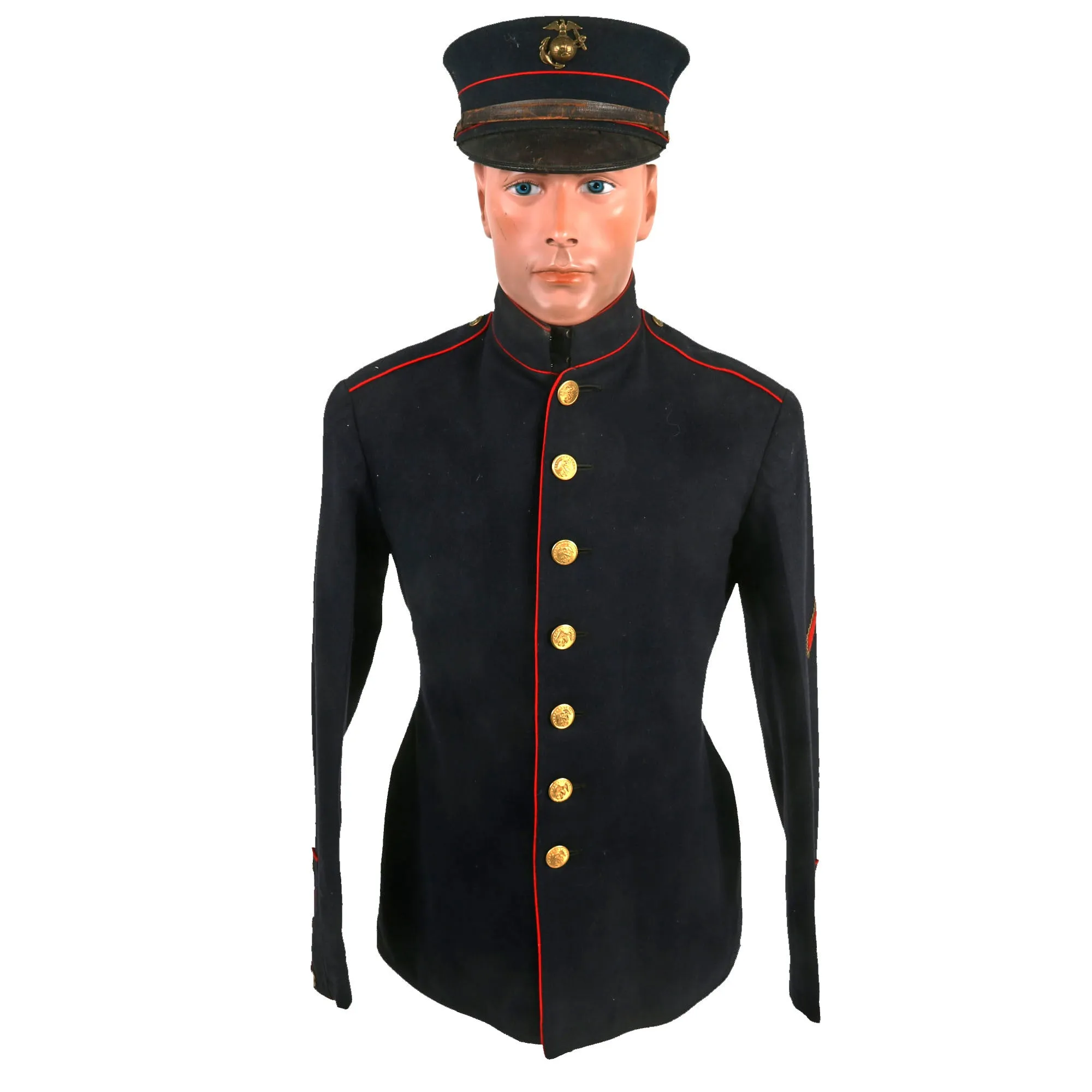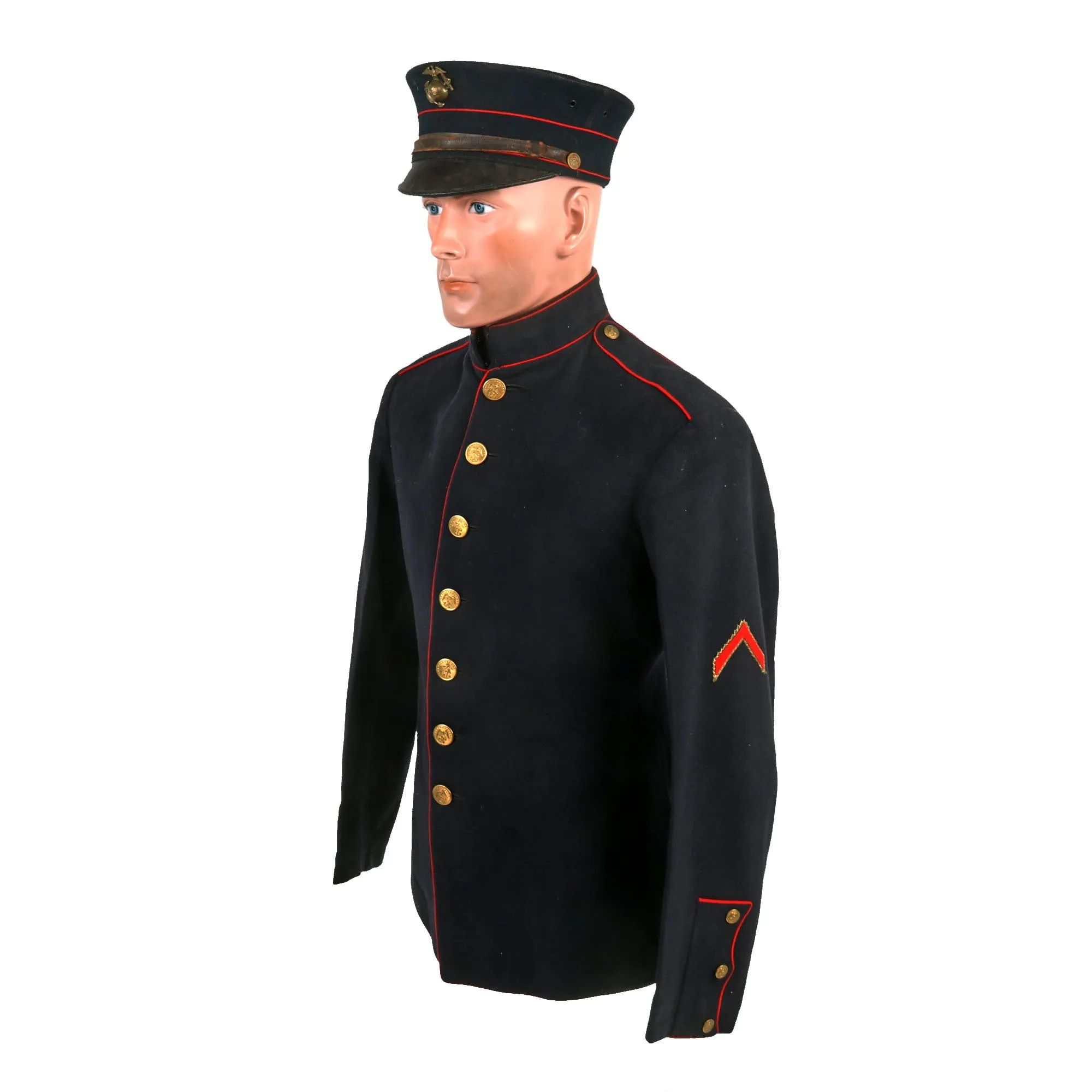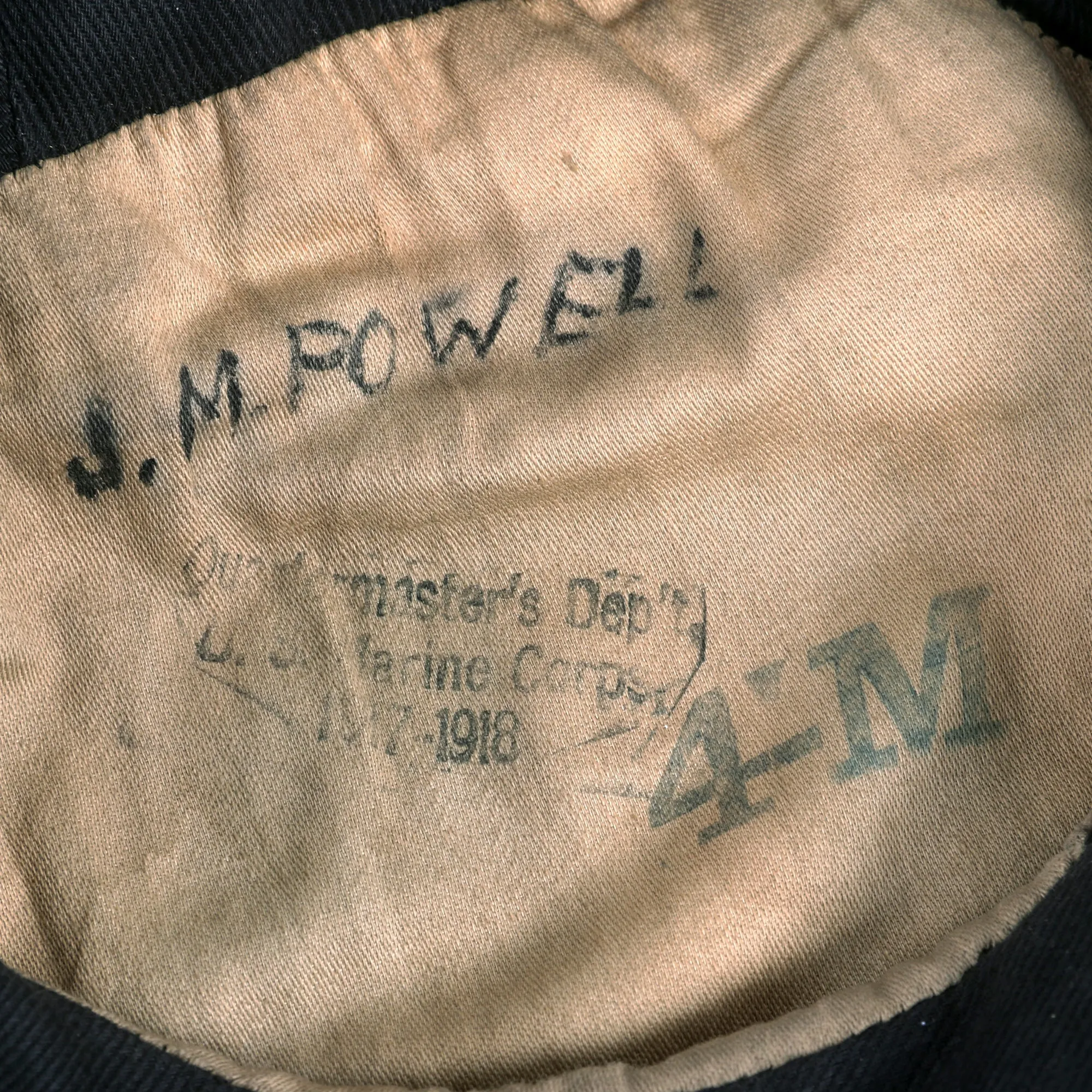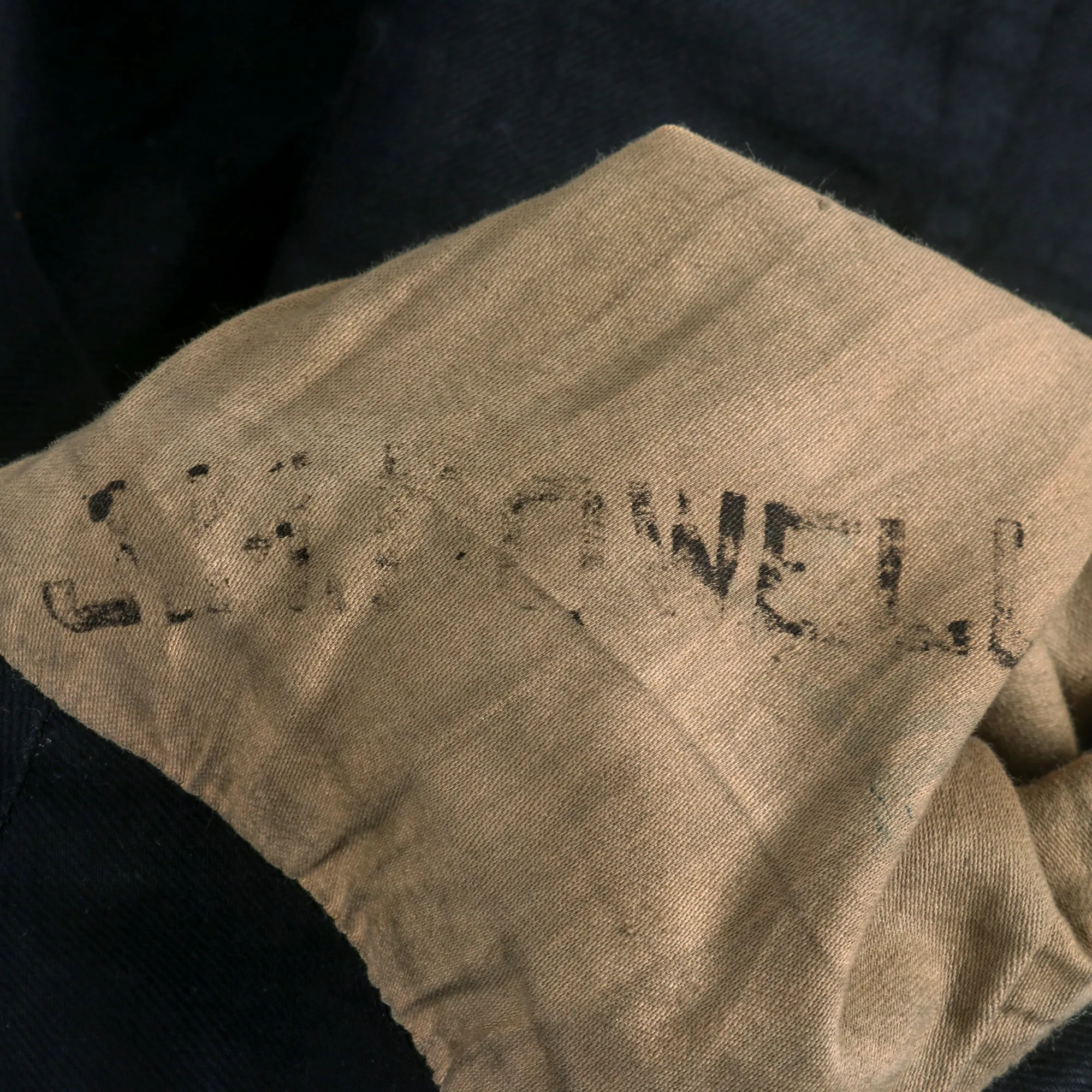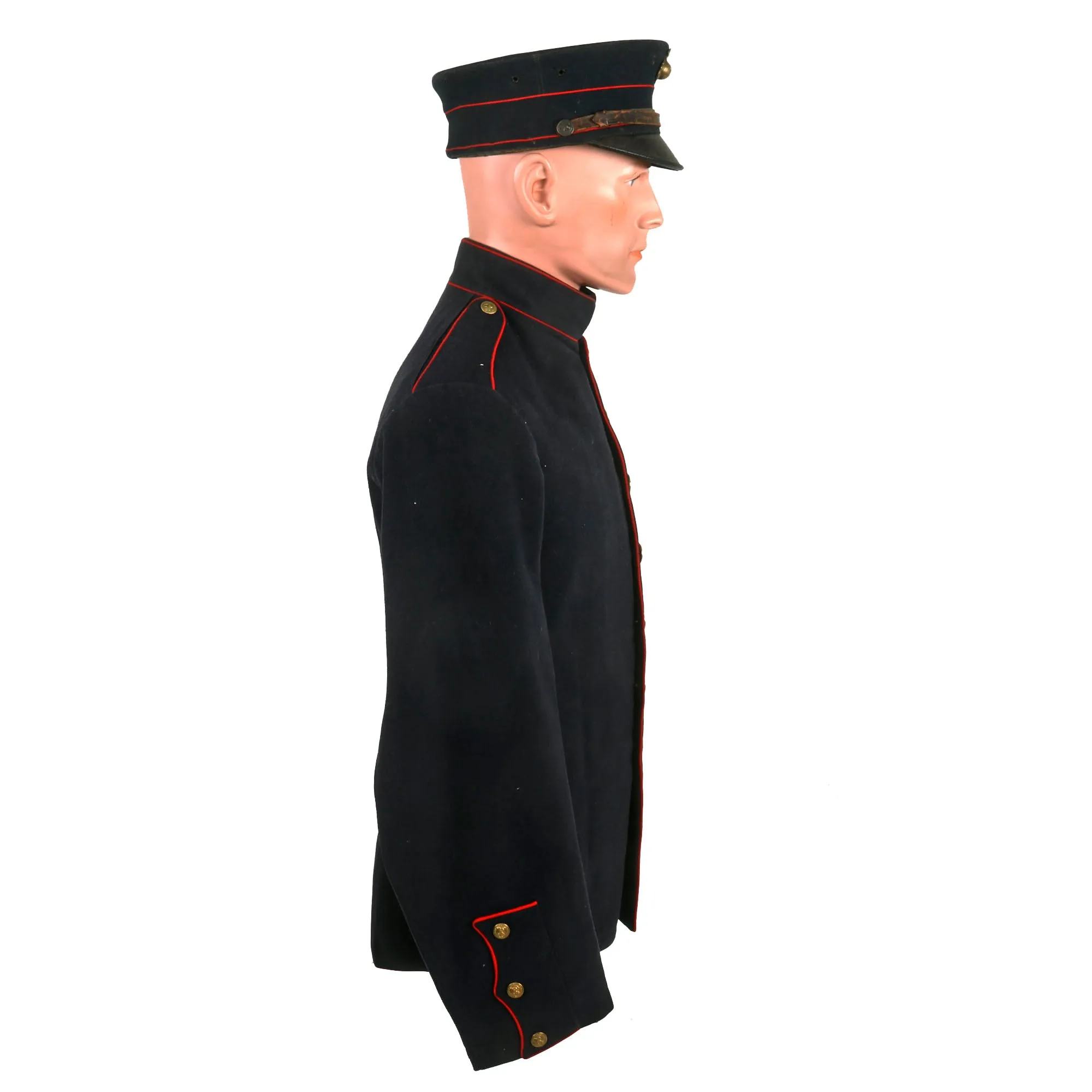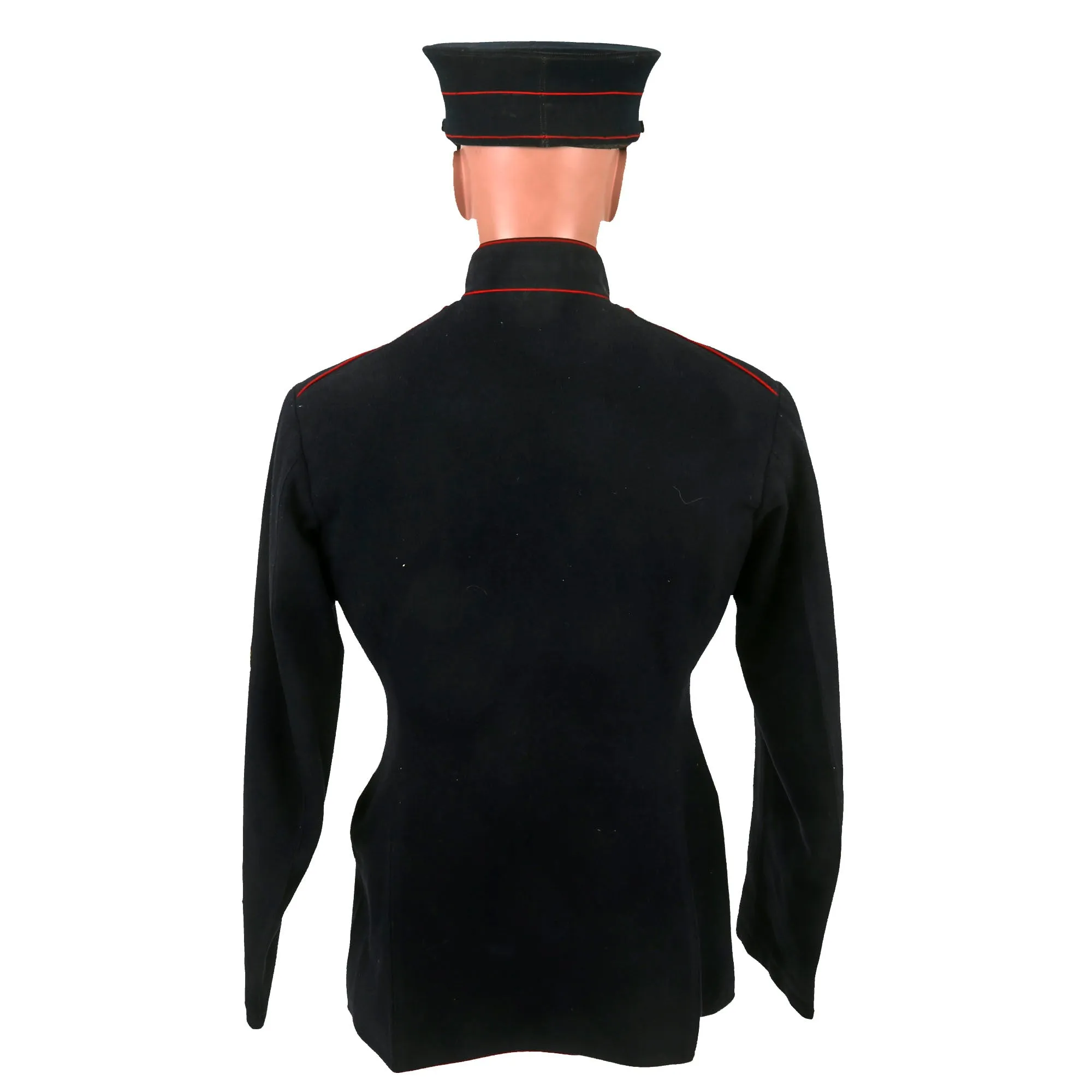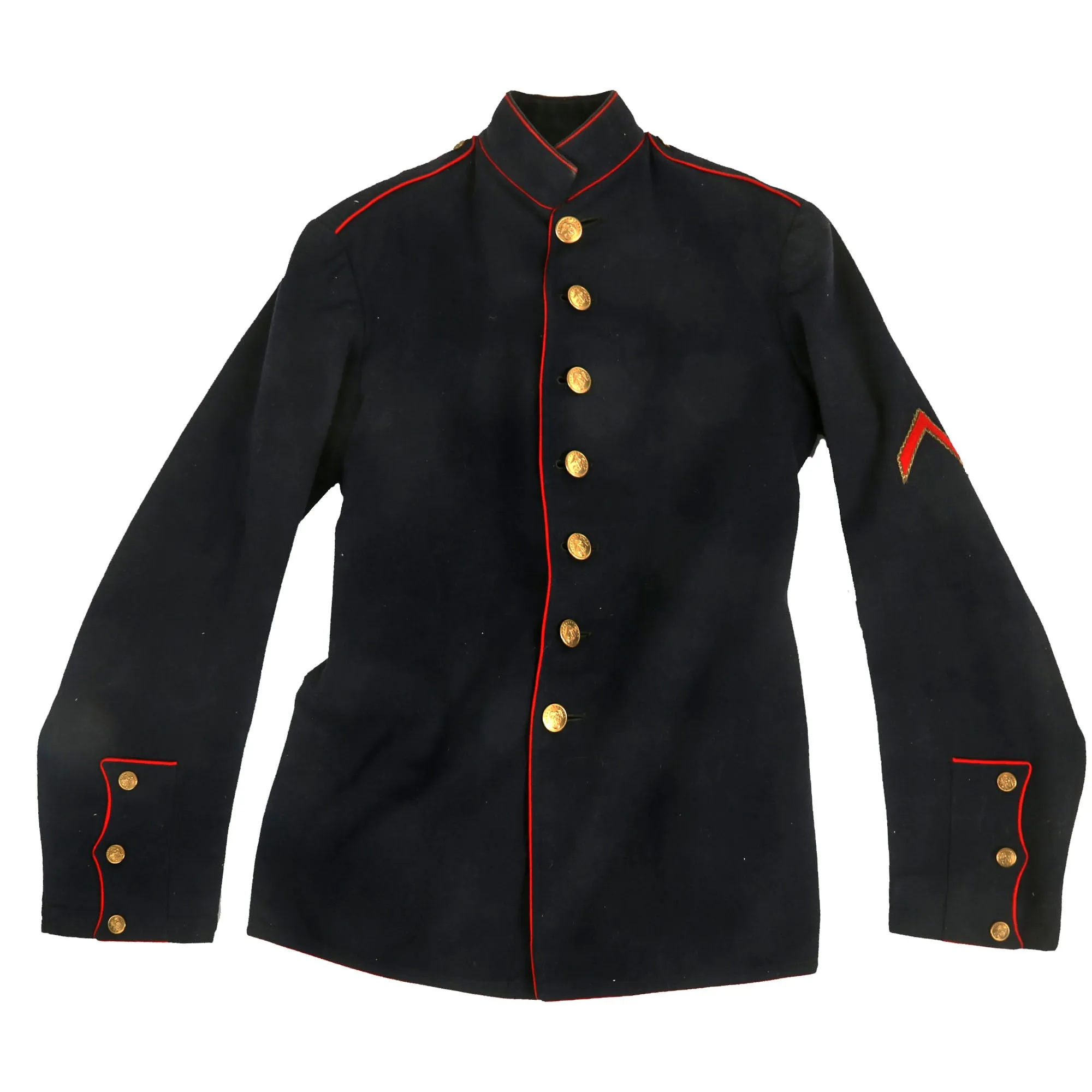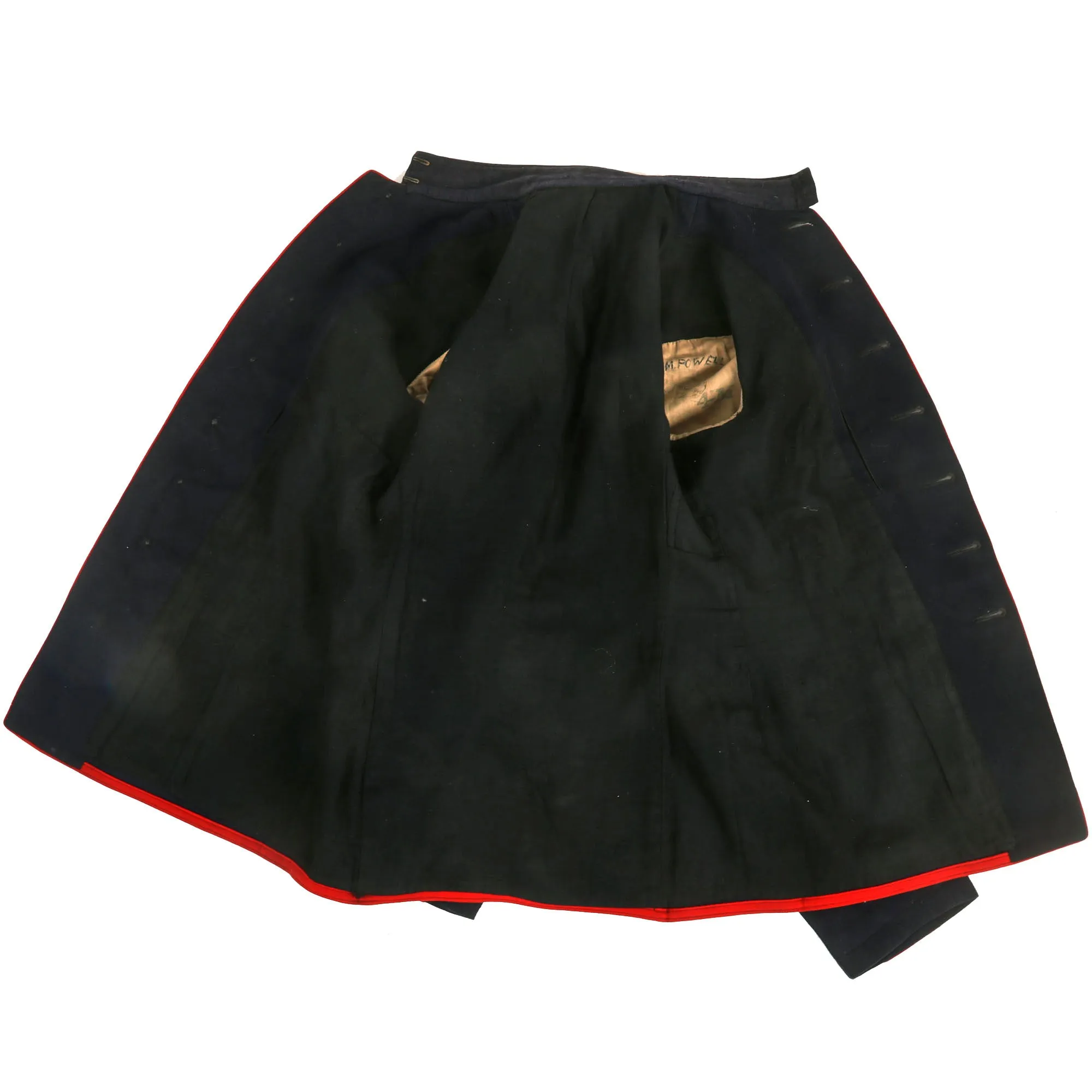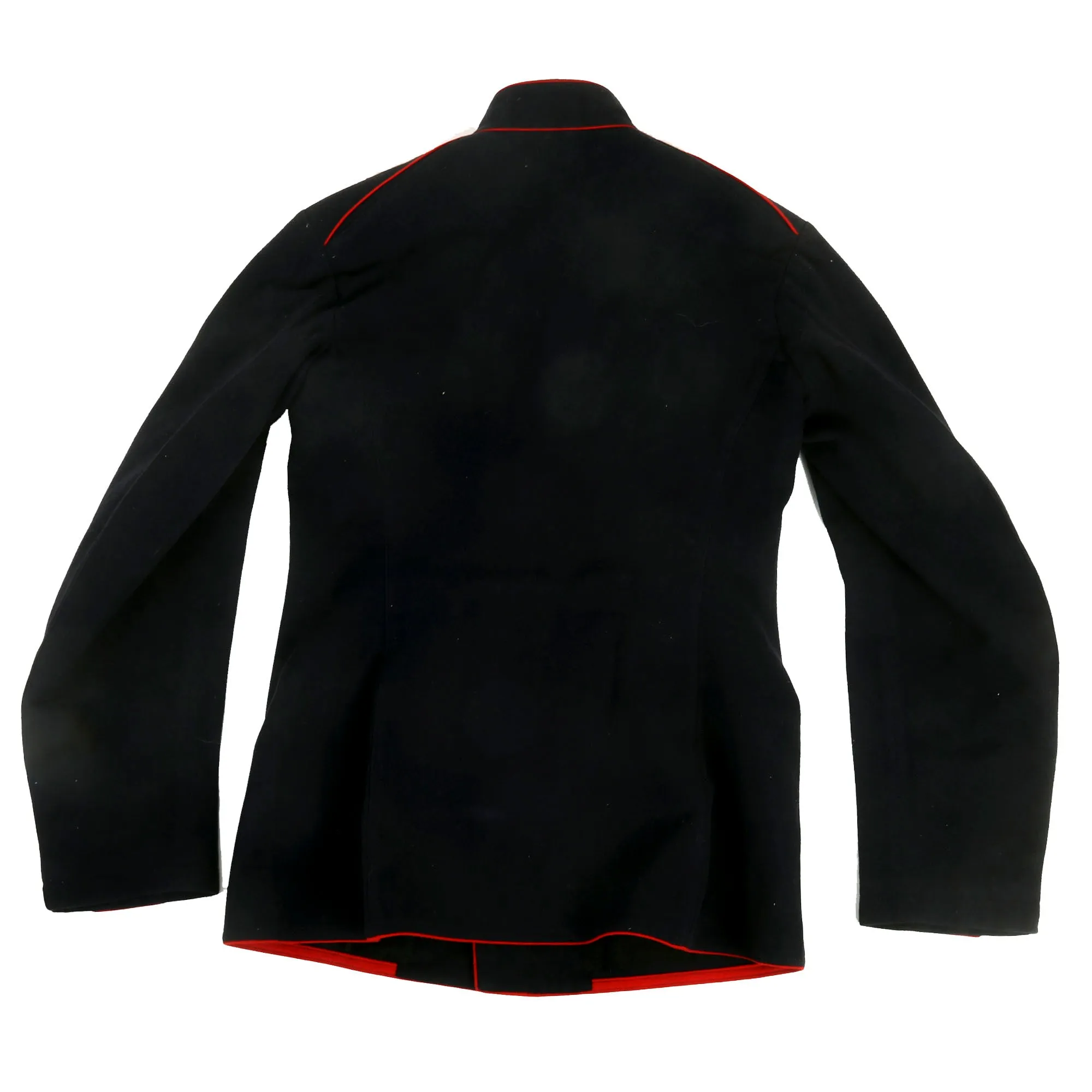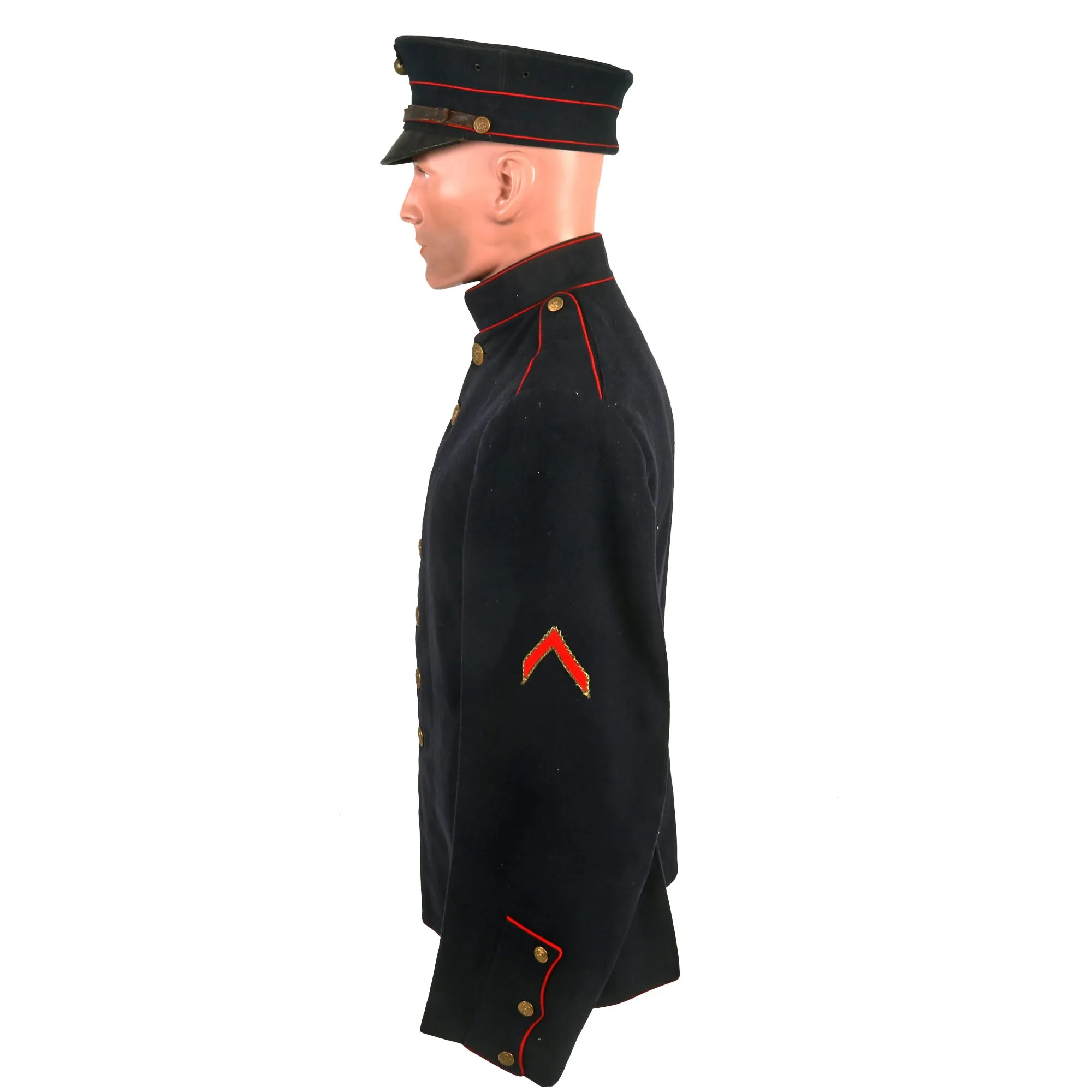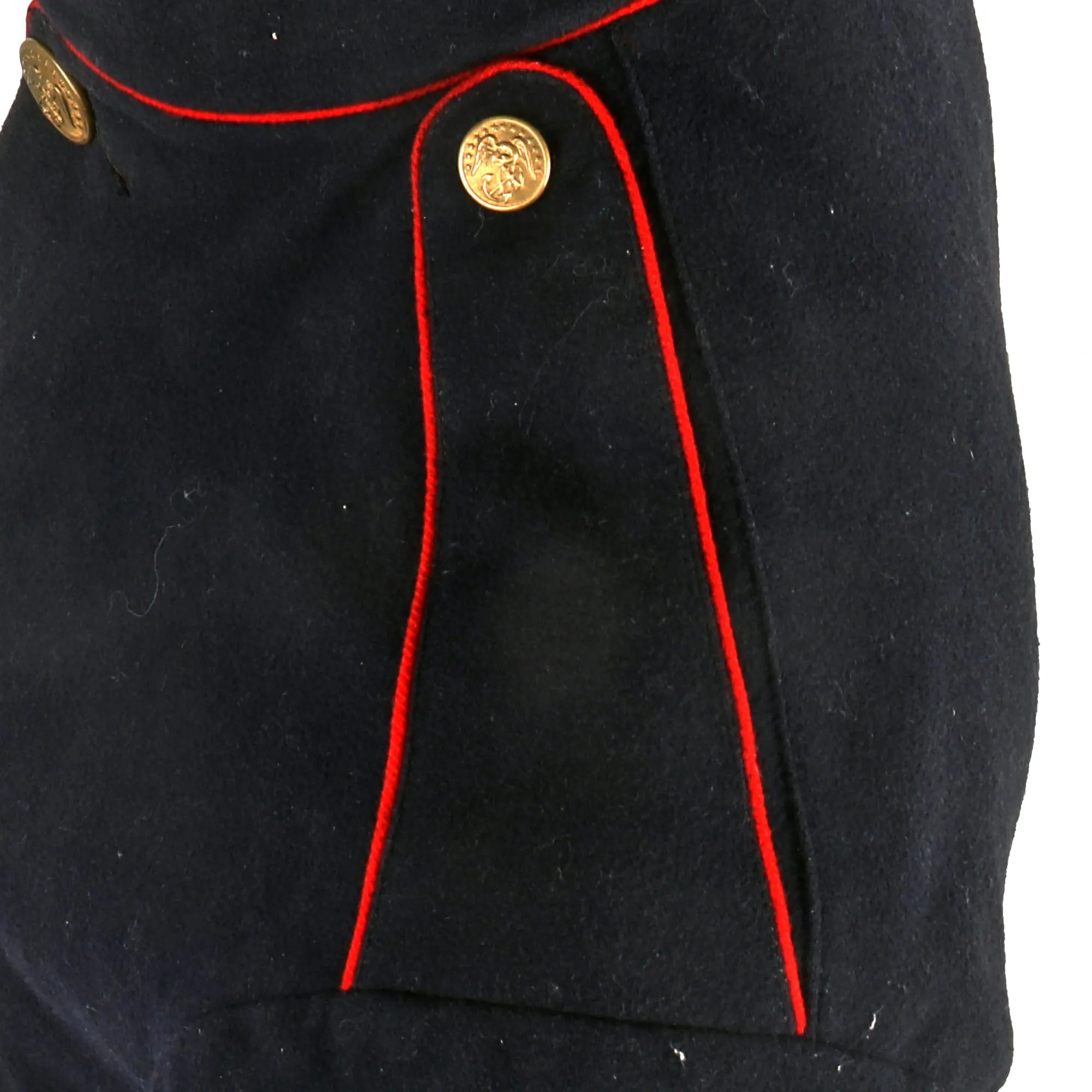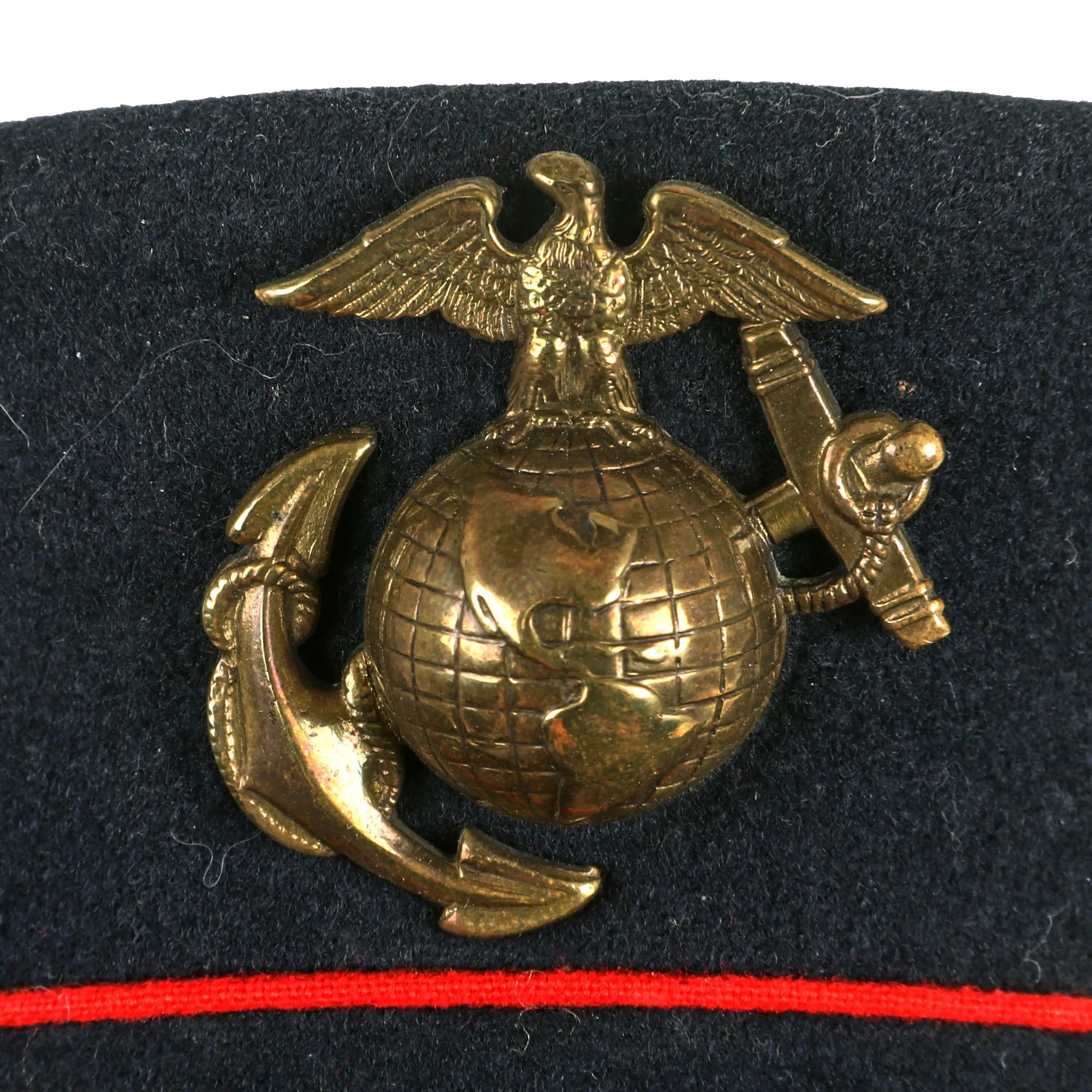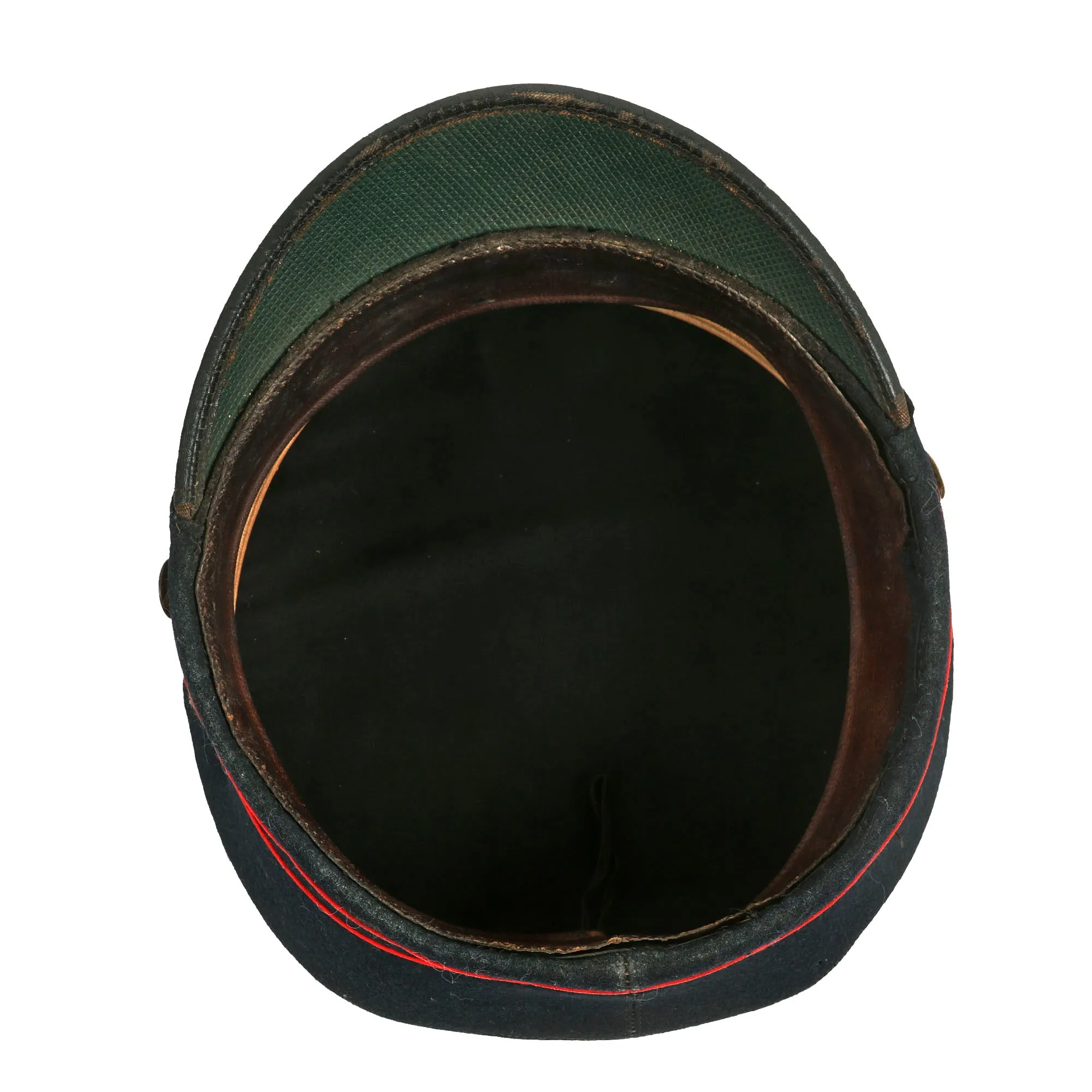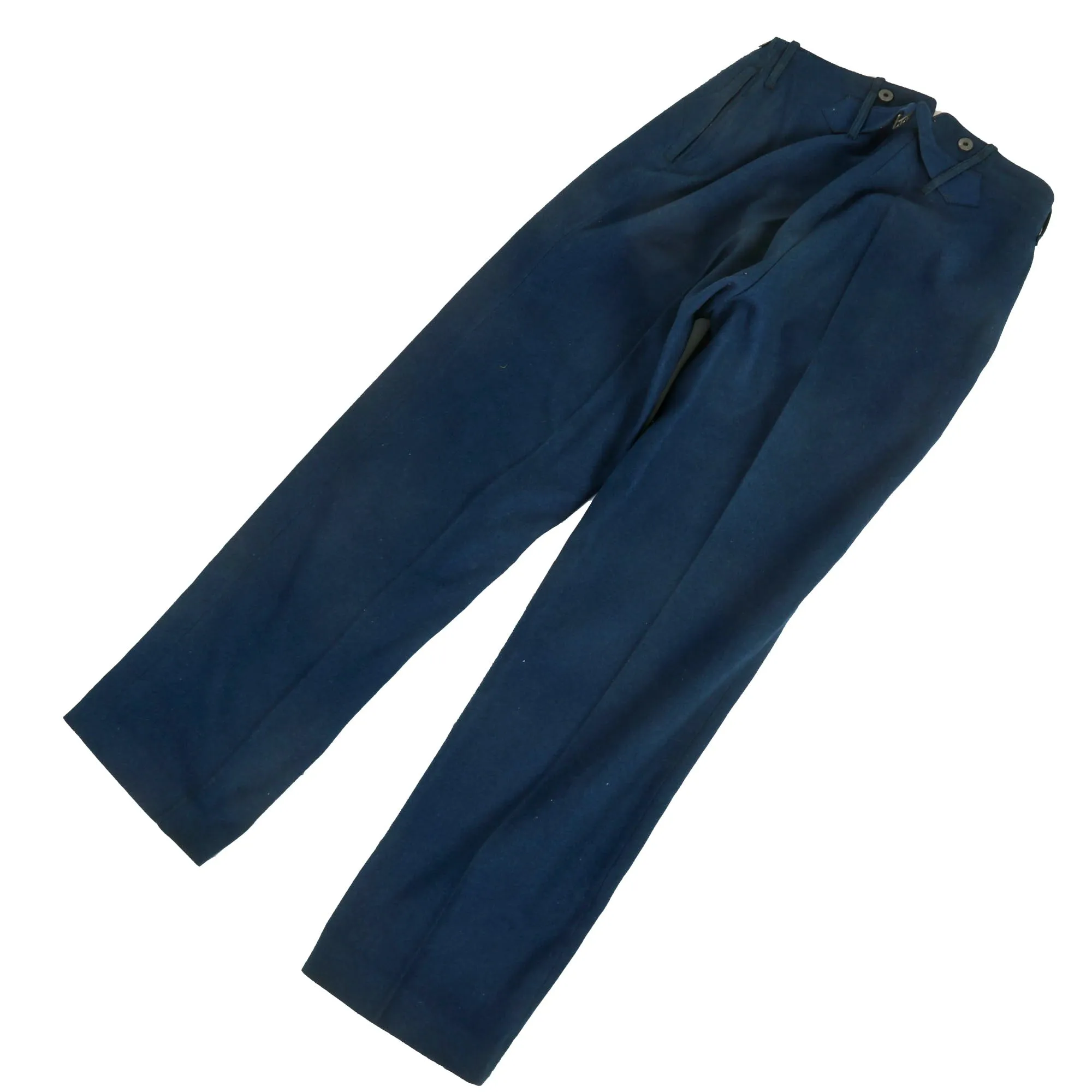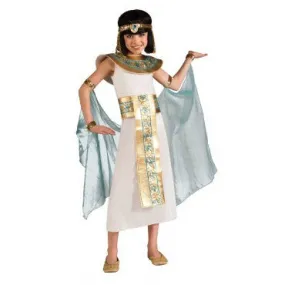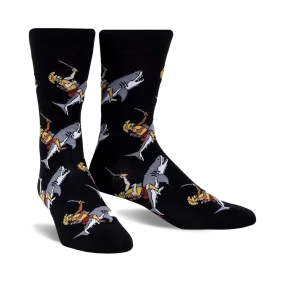Original Item: Only One Available: This is an example of the iconic USMC M1912 Dress Blue uniform with the rare Bell Crown service cap. All buttons are retained and everything is in fantastic condition. This model of tunic and service cap are integral for any USMC or WWI US Collection.
This is a full M1912 U.S. Marine Corps Uniform, including the M1912 dress tunic, dress breeches, and the dress Bell Crown service cap, named to Private John M. Powell, USMC. The tunic and pants are both near mint, in fantastic condition with one discharge chevron on the right sleeve. The pants are stenciled “J.M. POWELL” on the interior. The Bell Crown service cap has a full sweatband, partially ripped but still intact. The cap features a black leather brim, supported by pressed paper or fabric. The red piping trim was added when the 1912 model was patterned. The EGA is affixed to the front and is period correct with both latitude and longitude lines on the globe. The chinstrap is beautifully worn in a way that compliments the entire uniform. The cap has one or two tiny moth nips but is otherwise flawless on the exterior.
John M. Powell enlisted in the Marine Corps on December 12th, 1917, likely hoping to make it to France before the war was over. He was stationed at the Naval Ammunition Depot in New London, Connecticut for most of his time in the service.
Approximate Measurements:
Collar to shoulder: 10"
Shoulder to sleeve: 25”
Shoulder to shoulder: 16”
Chest width: 18"
Waist width: 17"
Hip width: 21.5"
Front length: 30.5"
Pants:
Waist: 15.5"
Inseam: 31"
The United States Marine Corps
The decades following the War of 1812 saw the Marines protecting American interests around the world, in the Caribbean, at the Falkland Islands, Sumatra and off the coast of West Africa, and also close to home in operations against the Seminole Indians in Florida.
During the Mexican War (1846-1848), Marines seized enemy seaports on both the Gulf and Pacific coasts. A battalion of Marines joined General Winfield Scott's army at Pueblo and fought all the way to the "Halls of Montezuma," Mexico City. Marines also served ashore and afloat in the Civil War (1861-1865). Although most service was with the Navy, a battalion fought at Bull Run and other units saw action with the blockading squadrons and at Cape Hatteras, New Orleans, Charleston, and Fort Fisher. The last third of the 19th century saw Marines making numerous landings throughout the world, especially in the Orient and in the Caribbean area.
Following the Spanish-American War (1898), in which Marines performed with valor in Cuba, Puerto Rico, Guam, and the Philippines, the Corps entered an era of expansion and professional development.
It saw active service in the Philippine Insurrection (1899-1902), the Boxer Rebellion in China (1900). and in numerous other nations, including Nicaragua, Panama, Cuba, Mexico, and Haiti.
Between 1900 and 1916, the Marine Corps continued its record of participation in foreign expeditions, especially in the Caribbean and Central and South America, which included Panama, Cuba, Veracruz, Haiti, Santo Domingo, and Nicaragua.





